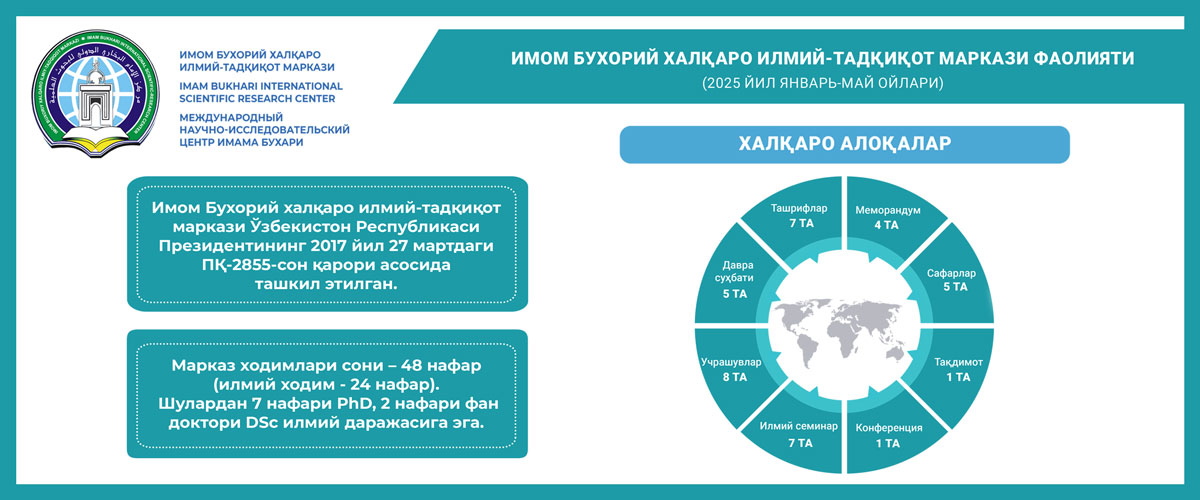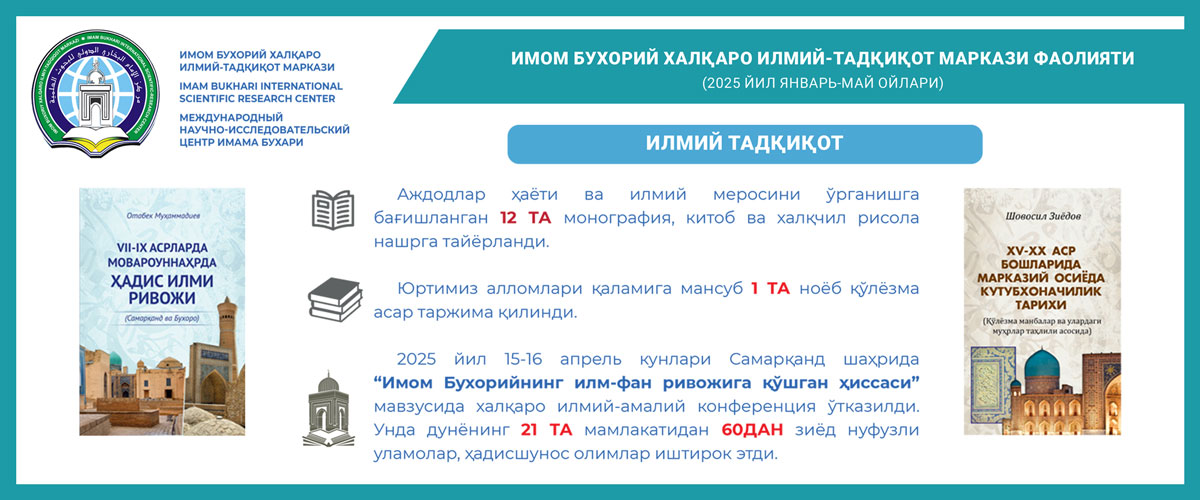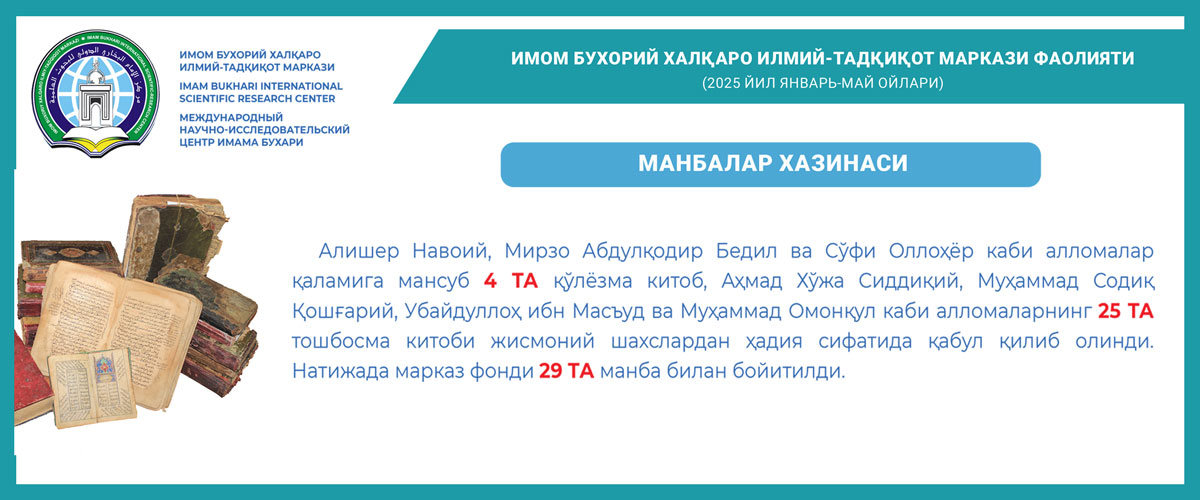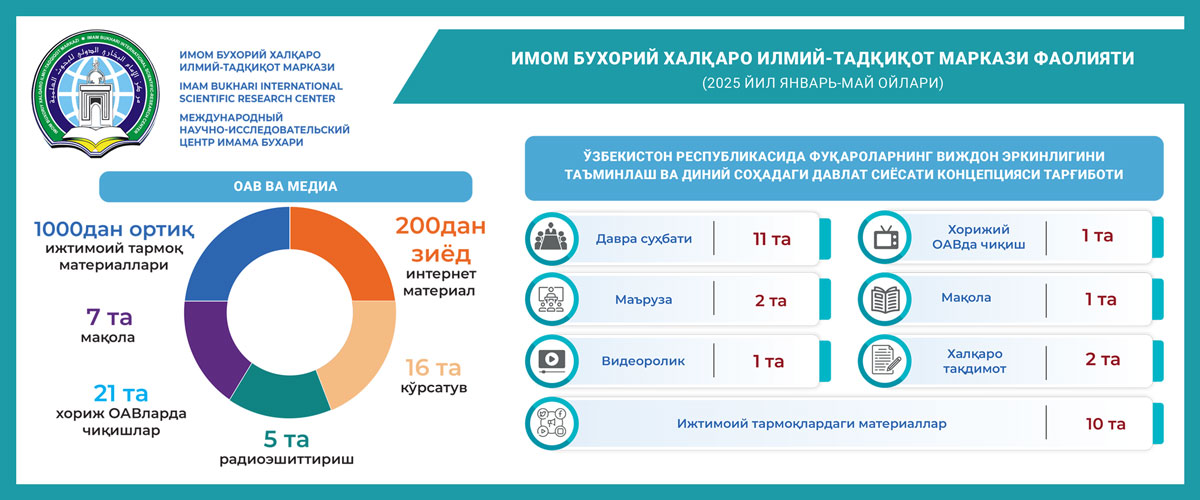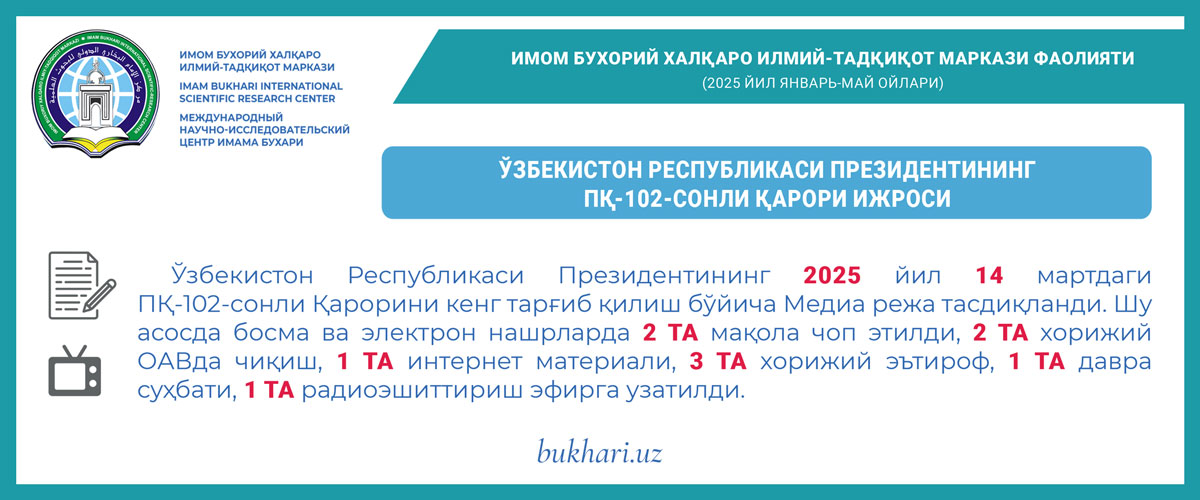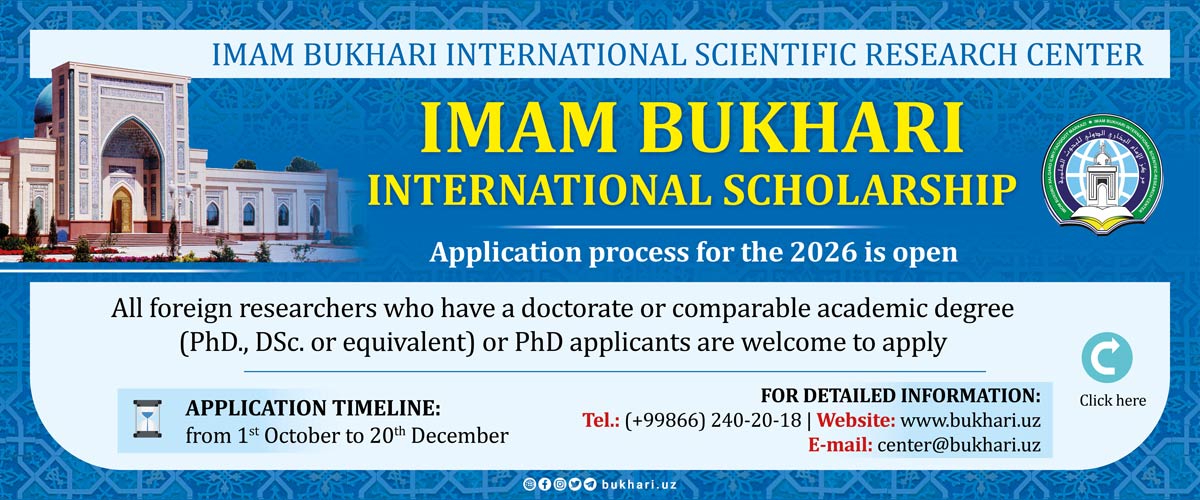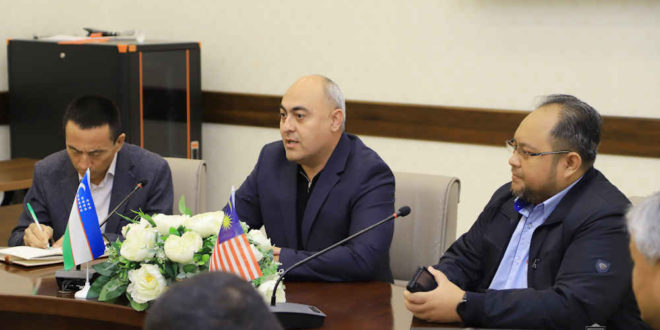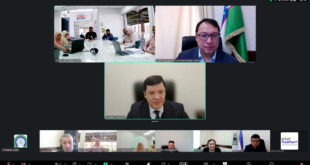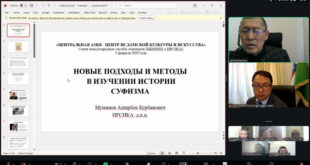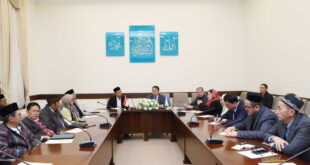Dr. Ashraf Ishraqi bin Jamil, winner of the Imam Bukhari International Scholarship Program, gave a presentation on the results of his scientific research conducted at the Center and in scientific institutions of our country.
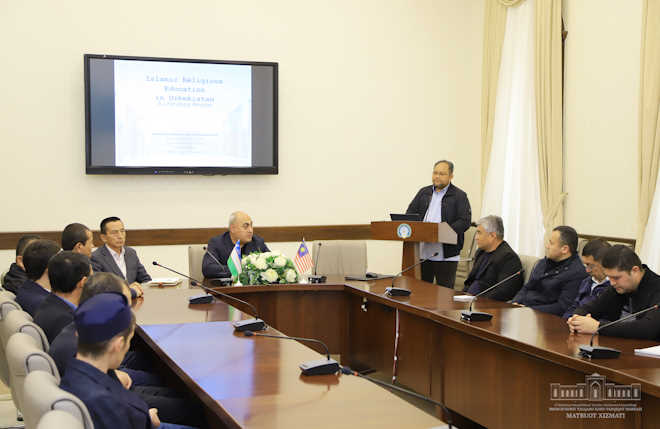
The presentation, titled “Islamic Education in Uzbekistan: The Path Traveled and Historical Changes,” was dedicated to the historical roots of religious education in our country and the stages of its development in line with political, social, and cultural processes.
Based on the information obtained as a result of the analysis of about 20 scientific works, the Malaysian researcher described the historical development of Islamic education in Uzbekistan, its problems, and the influence of religious and secular (neutral attitude towards religious views) factors on it, focusing mainly on the state of religious education during and after the Soviet period.
It is noted that due to restrictions and prohibitions in this area during the dictatorship, Islamic education lost its traditional forms, and this area remained in the maelstrom of long-term problems. Sources report that at that time, the old method of teaching religious sciences was secretly preserved through hujras.
The fellow acknowledged the efforts of representatives of the Jadid movement, such as Mahmudkhoja Behbudi, to restore Islamic education on a scientific basis in harmonizing traditional and modern forms of this education.
After Uzbekistan gained independence, religious education was restored in the country. The state paid special attention to the sector and ensured that religious education was carried out within the framework of the law.
The speaker called financial constraints a common problem in the sector at this time. He emphasized that financial difficulties in Islamic educational institutions have often negatively affected the quality of education.
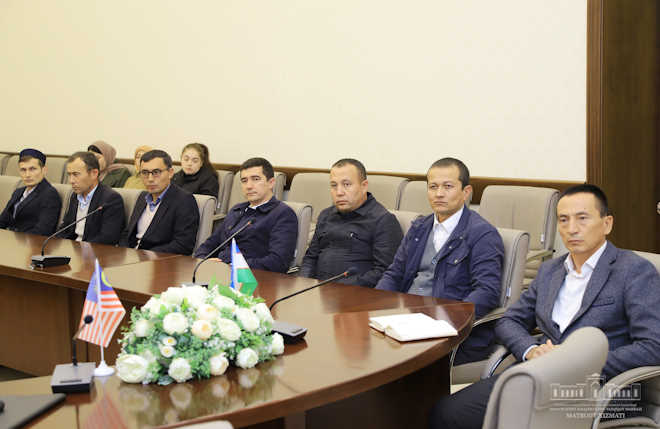
It was noted that as a result of the government’s increased attention to this area and the reforms being carried out to harmonize the industry with modern requirements and national values, the infrastructure of religious educational institutions is being improved, new madrassas, Islamic academies and research institutions are being opened. It was pointed out that this will serve to shape young people as a religiously enlightened, broad-minded, tolerant, and spiritually mature generation.
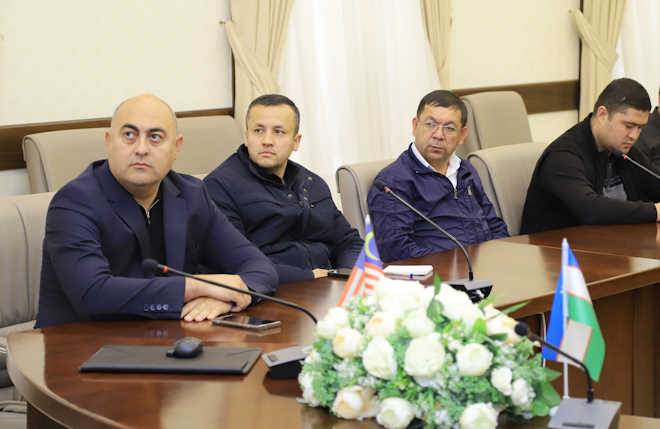
The center’s fellow recognized that the attention the state is paying to religious education in New Uzbekistan is a great impetus for ensuring social stability in the country, preserving spiritual and cultural values, and helping young people acquire correct religious understandings.
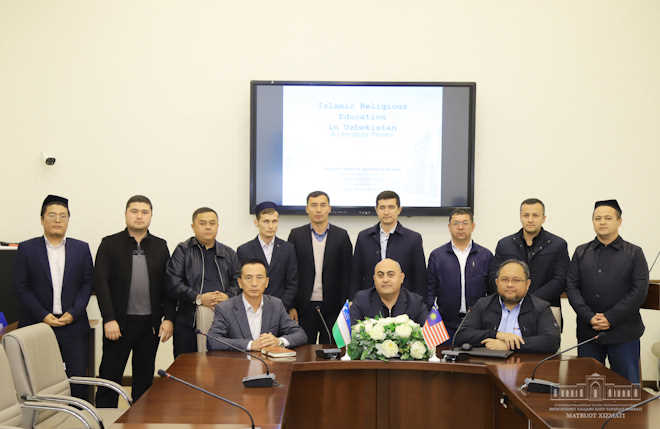
The event was full of lively questions and answers and discussions.
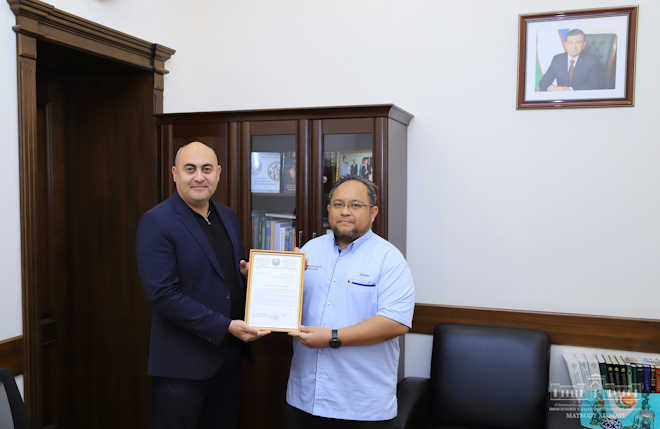
With this, Ashraf Ishraqi bin Jamil’s scientific internship at the Center has come to an end. He was awarded a certificate of successful completion of the internship.
 Imom Buxoriy xalqaro ilmiy-tadqiqot markazi bukhari.uz
Imom Buxoriy xalqaro ilmiy-tadqiqot markazi bukhari.uz
